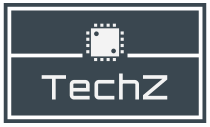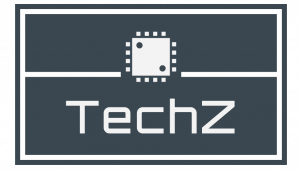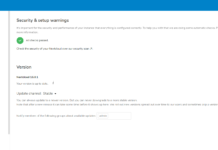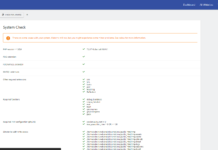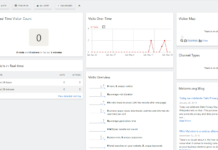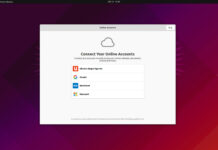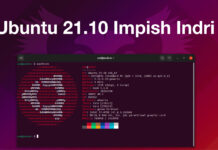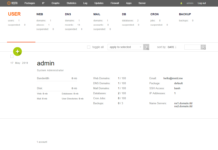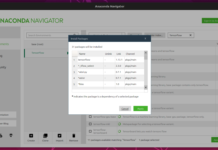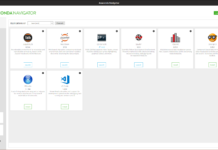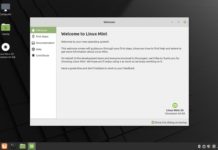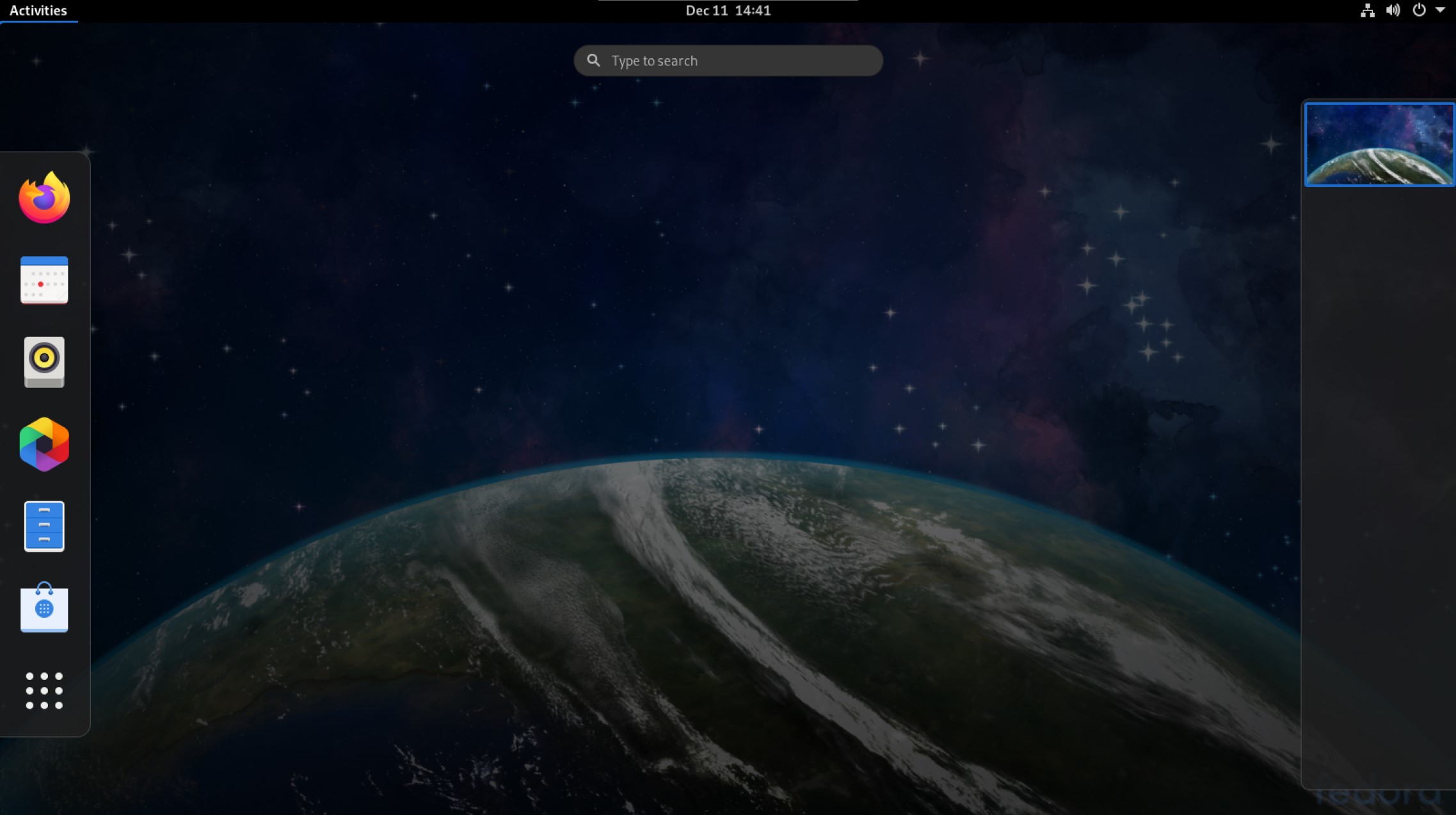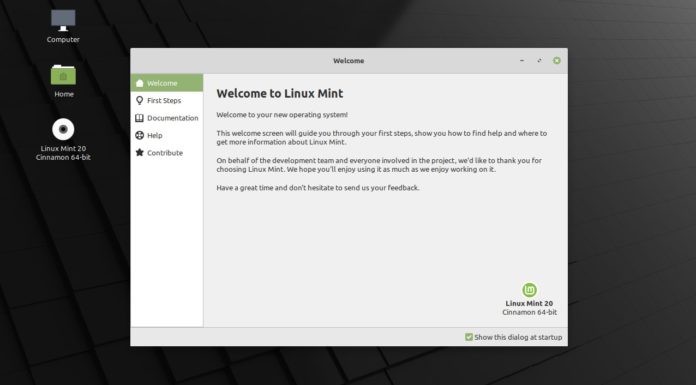A brief intro into Linux;
Linux is an amazing operating system that I wholeheartedly recommend to anyone who isn’t tied down to the windows operating system. Linux distros have come a long way in recent years and can do almost everything that ‘Windows’ can and has many advantages over windows. Today we will learn How to install Fedora 33.
Unless you use very specific Windows-exclusive software like the Adobe suite of programs or you play video games which only run on Windows for now; as Steam has been working very hard over the last year to make video games run with one click solutions on Linux and they have made spectacular progress.
Today we explore how to install and run one of the most popular Linux operating systems out there. You may have heard of it, in fact, many Linux distros have been made from a modified version of it. Fedora is a great example of a modern and easy to use Linux operating system, which is perfect if you are beginning to explore the wonderful world of Linux.
Let’s get started with how to install Fedora 33;
Step 1: Create a USB installer
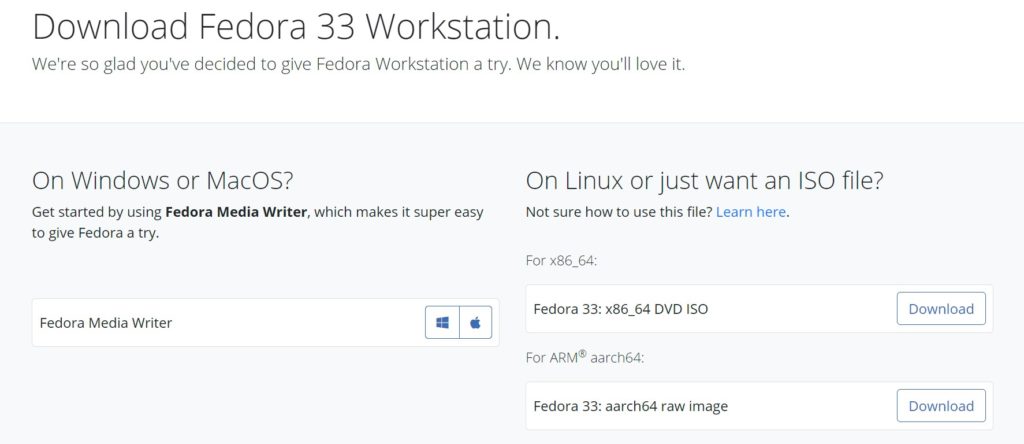
First thing is first, you are going to need to boot into a USB installer to start the installation process. This involves two parts; first, download a copy of Fedora 33 from their Official Website.
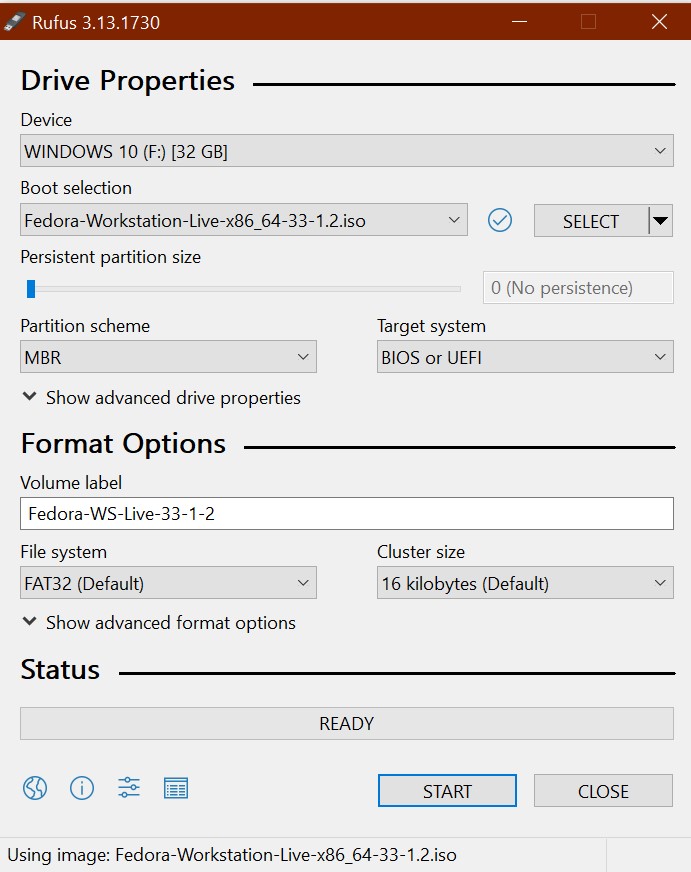
Then download Rufus which is the tool you will need to create your USB installer with a few simple clicks. Click here to download version 3.13 of Rufus or go to Rufus.ie and download the latest version.
Step 2: Boot to the USB drive
Make sure you recently created USB installer is plugged into the computer you would like to install Fedora into then power it on and as it boots continuously tap either the F10 or F12 (depends on your computer) function key on your keyboard to enter the boot menu then choose your USB drive to boot into.
Step 3: Start the installation
The Fedora USB installer like many Linux distro’s come with a version of the operating system already installed on the USB drive called “live USB”. This gives you the chance to try it out but, do keep in mind that any changes you make will not be saved and the drive will reset to factory defaults when you reboot.
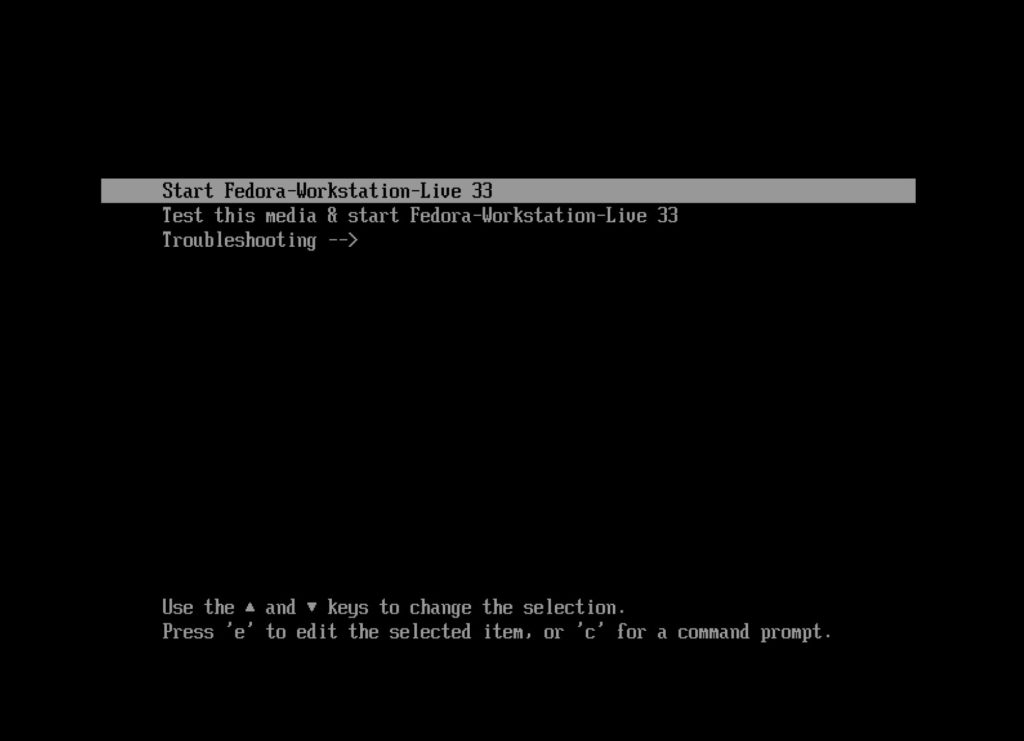
Move down to “Start Fedora-Workstation-Live 33” to get started;
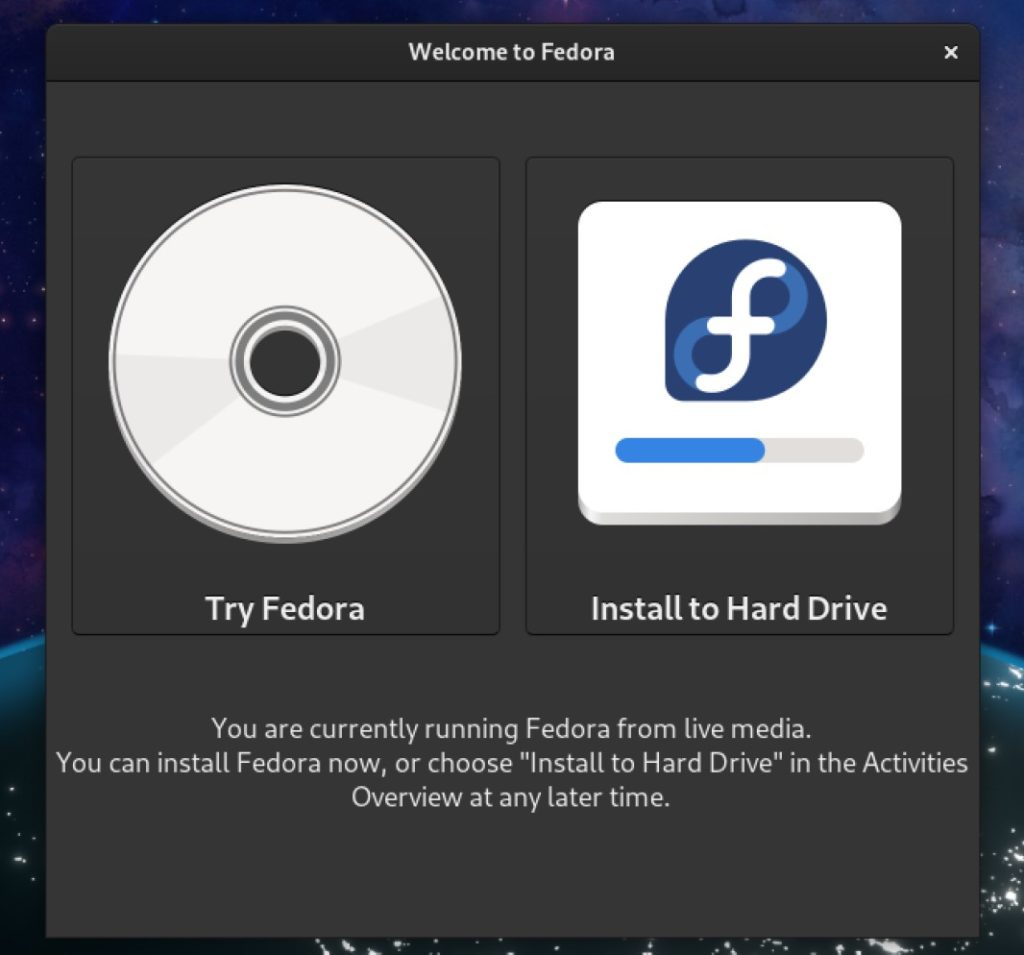
Click on “Install to Hard Drive” to start the installer;
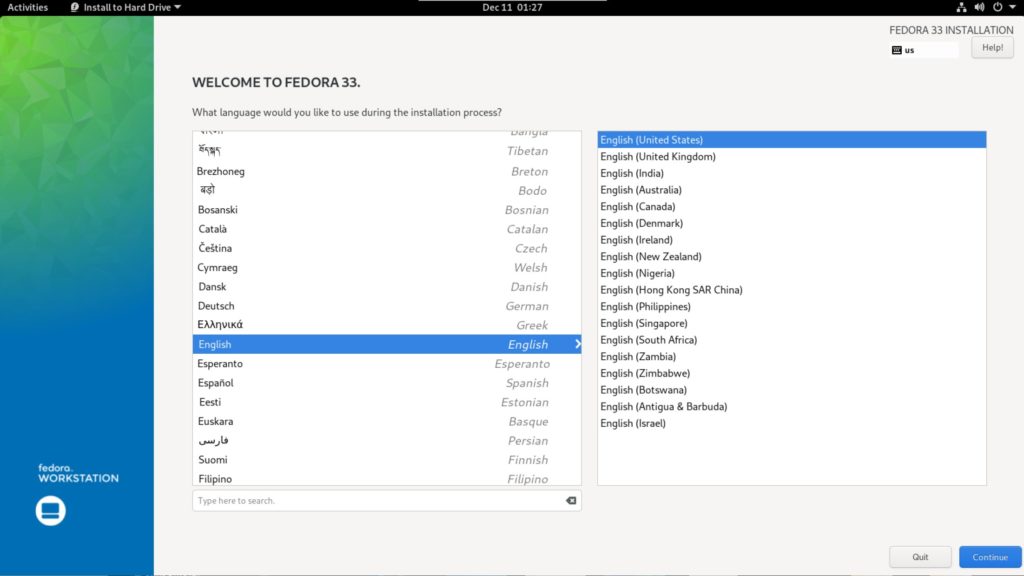
Pick your desired language then click continue;
Step 4: Choose some options
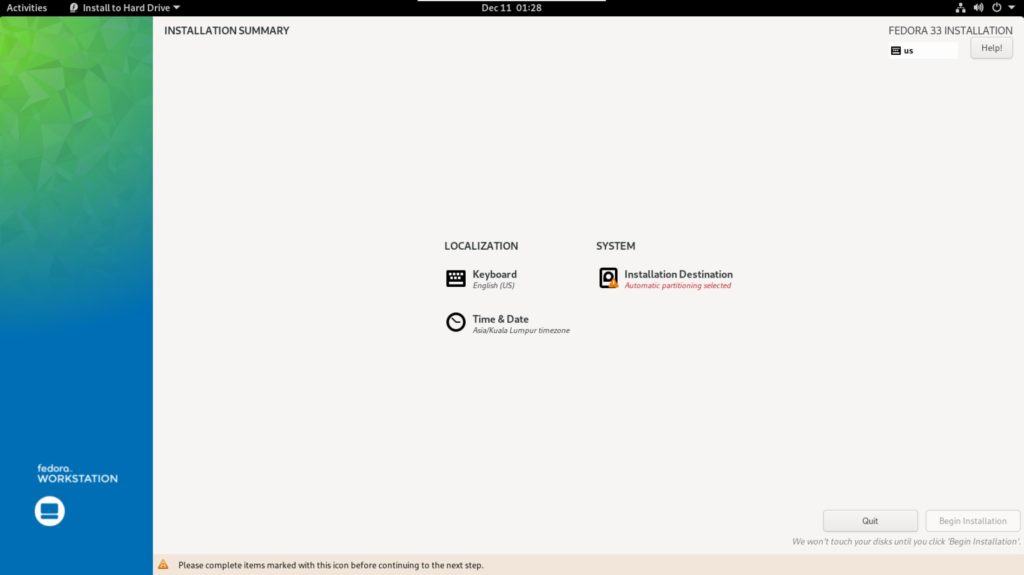
Now pick the options you would like, for beginners leave it at default but change the keyboard layout and date if you require it. Next click on the Installation Destination option to view the partition options.
Step 5: Partition the Drive
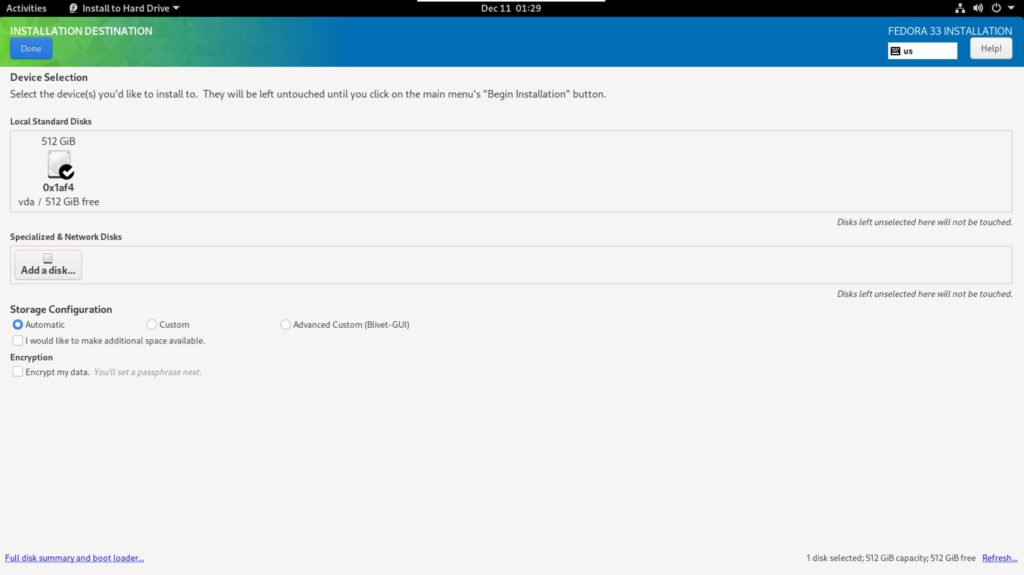
Here you may choose partition options and you may choose to enable and configure whole disk encryption or customize your partitions to your own liking. For most people, the default options are probably going to be just fine. Once satisfied with the options click “Done” to return to the previous screen. Wait a few seconds for the installer to update, then click “Begin Installation” to start installing the OS.
Step 6: Finalize the Installation
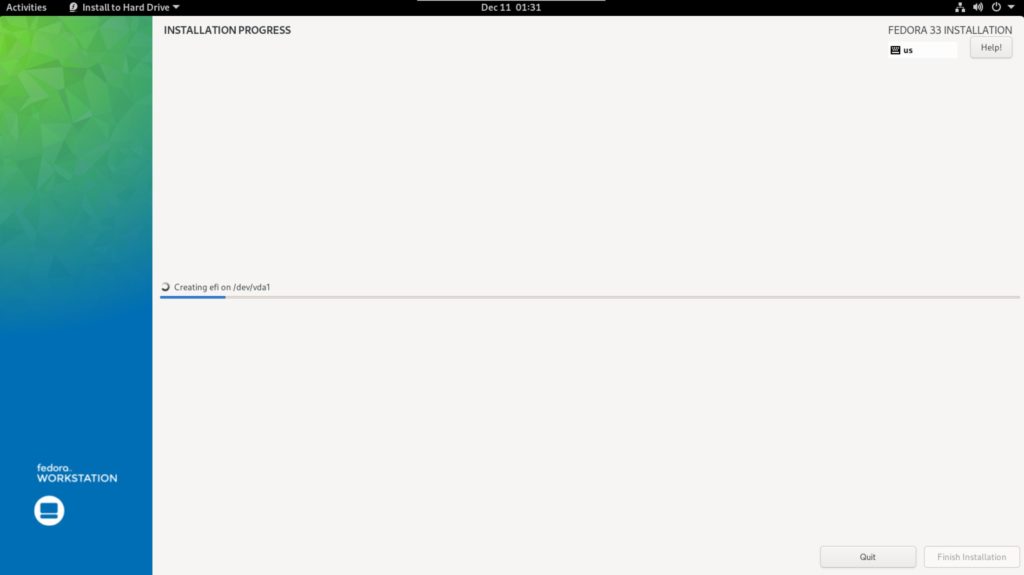
Now sit back grab a drink from the kitchen and before you know it, Fedora will finish installing and when its done click on “Finish Installation” to exit the installer, then restart the computer from the right side of the top bar as the installation has completed and you need to boot into your shiny new Fedora operating system to continue.
Welcome to Fedora 33
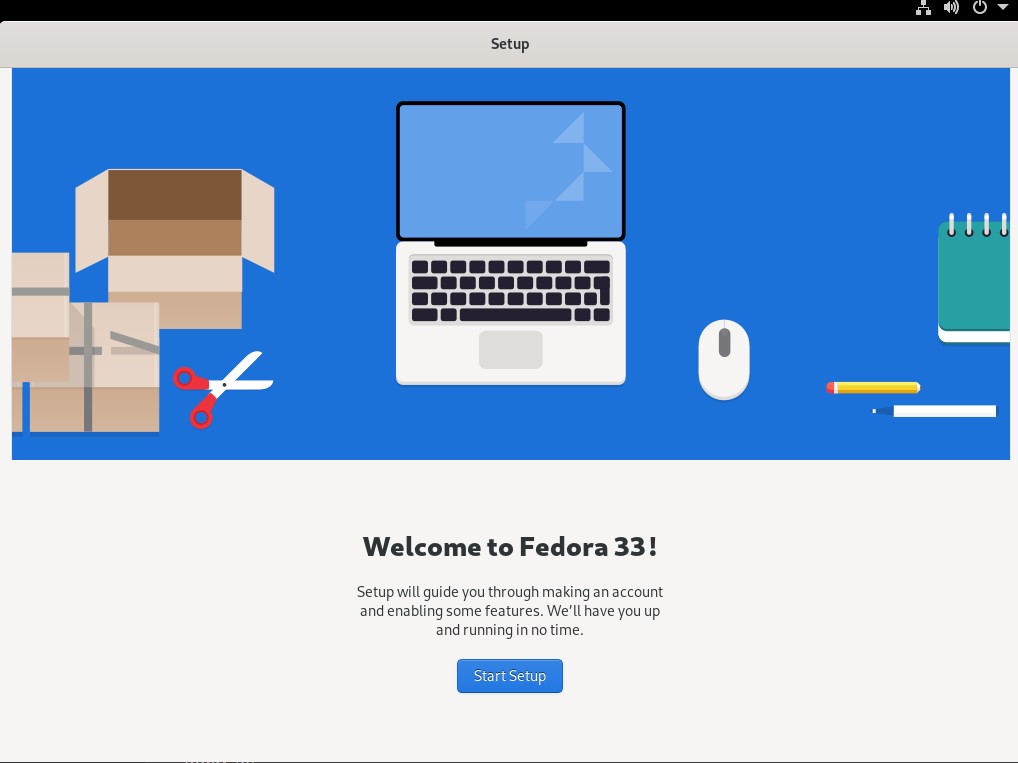
Here is the welcome screen for your new installation. Just need to go through a few more menus to set your username and other details. Click “Next” to continue;
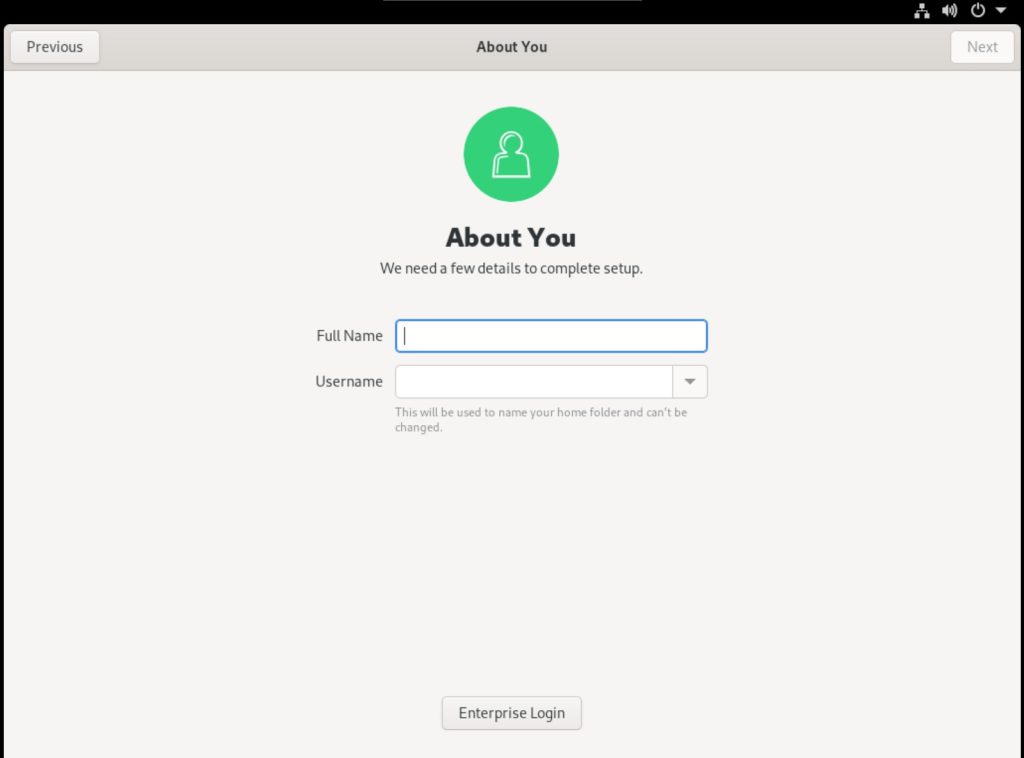
Insert your name, and user name for your computer and continue to set a secure password in the next menu;
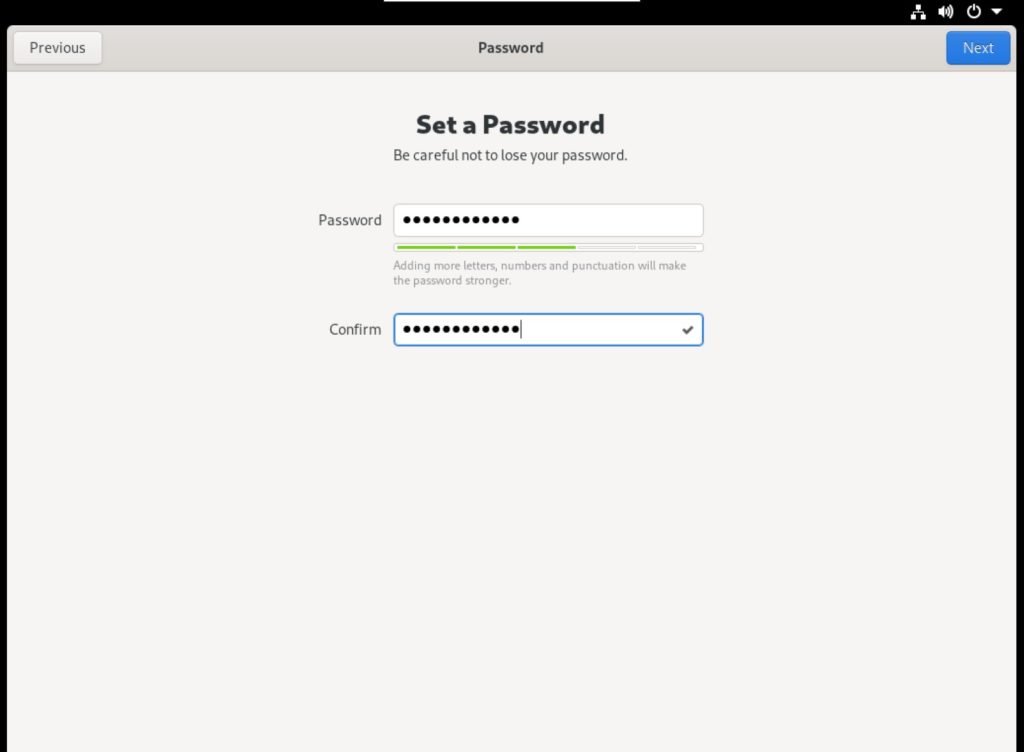
Once you set your password, you are ready to start using your desktop;
Welcome to your Desktop;
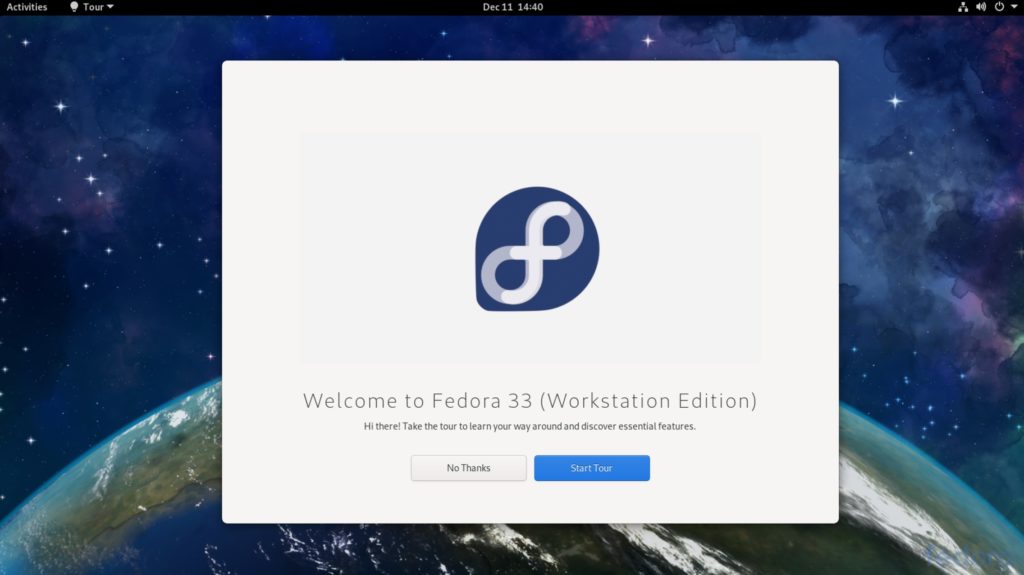
You have completed the installation and initial setup. You now know how to install Fedora 33. Feel free to explore your latest Fedora installation and drop a comment below about what you think of Fedora.
Find out here, the top 6 things to do with a fresh Fedora 33 installation.
